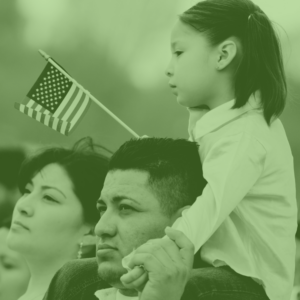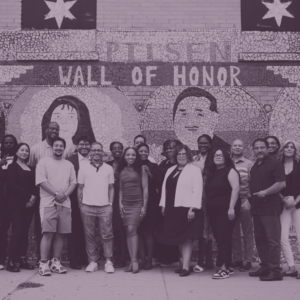As a 10-year-old, I was acutely aware of the assassination of the Rev. Dr. Martin Luther King and the civil rights efforts that he championed.
The notion that all human beings are entitled to fairness, justice and equity deeply resonated with me.
It became personal when I realized injustices had impacted my own family, who were farm workers at the time.
It compelled me to seek justice and walk my first picket line for the United Farm Workers at the age of 13.
I could not sit by while people experienced unfairness and injustice based on their race/ethnicity, the circumstances they were born into, or challenges they faced to eek out a living.
As a result, I spent my youth being an activist and the past 30 years advocating for equity for the Latino community. My motivation has been to “change the world as it is to the world as it should be.”
Despite this passion, and somewhat ironically, I never read many of the authors who wrote on the topic of justice. That was until recently when I spent a week at the Aspen Institute, participating in the Justice and Society seminar. It was like a graduate school class reading, discussing and analyzing the writings of authors such as Rawls, Locke, Le Guin, Mills, Berlin, Anderson, as well as various supreme court decisions.
Thirty years into my career, these original thinkers are teaching me new lessons that I’m applying to my work. They provide a theoretical framework to accompany the economic and data driven lens through which I have been trained to seek equity, parity and justice for Latinos at the Latino Policy Forum. They also compliment the passion and intuition by which I lead.
It’s an understatement to say the Aspen Institute’s seminar was enriched by the dialogue, experience, knowledge, and insight of the other participants and facilitators – an intimidating group of judges and lawyers.
On a personal level, I was affirmed by my ability to contribute and by having the unexpected opportunity to be on a panel with Senator Jeff Flake to discuss the current immigration environment. The extensive feedback I received indicated that I held my own, provided thought-provoking information and successfully shared my perspective on the challenges and injustices of the nation’s current immigration climate and actions of our federal government.
Upon reflection, it will be an ongoing journey to apply the readings to the current immigration environment that we are in. Too often, the issue is framed as upholding the rule of law. Rarely is it ever framed as how to respond to an unjust law. One of the background readings states: “Disobedience to law as a statement of conscious raises the classic conflict between the individual’s sense of justice and the demands of the legal order.” It was almost exhilarating to read the responses, which briefly summarized are “whether to obey an unjust law (Plato/Socrates); whether unjust laws justify the right of rebellion (Locke); and engage in civil disobedience as a conscious political strategy to unjust laws (King). Or from other readings, do we have a responsibility to contribute to the less fortunate (Singer), or accept that we live in a society in which some will suffer and we can choose to accept it or walk away (LeGuin).
Too often, the issue of immigration is framed as upholding the rule of law and rarely is it ever framed as unjust. I continue to contemplate that Locke would say we have the right to rebel to an unjust law; a premise on which the United States was founded.
There clearly is no one right answer to the current immigration crisis our nation as well as many others around the planet are facing. But this experience helped me put into focus the parameters of our moral responsibility on this issue.
Dr. King would say that we have a moral responsibility to engage in peaceful civil disobedience. I have certainly done my share of this. Anderson asserts that “egalitarian justice is to end oppression, which by definition is socially imposed.” Given this, I ask: How do we end the oppression which has led individuals to risk their lives to leave their homeland and put children in cages? Whichever path we choose, I am of the firm belief that we must end the tyranny and oppression that limits our ability to achieve justice and that we have a moral responsibility to address the issue with compassion and respect for all those impacted.
Until then, I pledge to continue seeking justice for our shared humanity.
Adelante,
Sylvia




